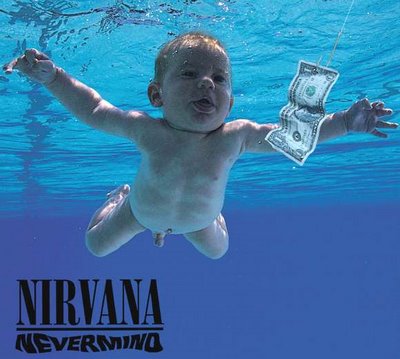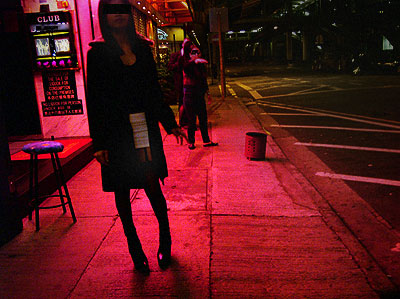Wikipaedia part 2.
Following representations from Wikipedia, IWF invoked its Appeals Procedure and has given careful consideration to the issues involved in this case. The procedure is now complete and has confirmed that the image in question is potentially in breach of the Protection of Children Act 1978. However, the IWF Board has today (9 December 2008) considered these findings and the contextual issues involved in this specific case and, in light of the length of time the image has existed and its wide availability, the decision has been taken to remove this webpage from our list.Any further reported instances of this image which are hosted abroad, will not be added to the list. Any further reported instances of this image which are hosted in the UK will be assessed in line with IWF procedures.IWF’s overriding objective is to minimise the availability of indecent images of children on the internet, however, on this occasion our efforts have had the opposite effect. We regret the unintended consequences for Wikipedia and its users. Wikipedia have been informed of the outcome of this procedure and IWF Board’s subsequent decision.
In other words, the only mistake the IWF is owning up to is that they overreached themselves in blocking a site that was always likely to stand up to them. While admitting that they flagrantly failed to consider the contextual and extenuating circumstances surrounding the image, they make quite clear that if the image was hosted on a server in the UK that they reserve the right to demand that it either be taken down, and/or blocked. It is, after all, in their view, in breach of the Protection of Children Act 1978. That the "child" didn't object at the time and still doesn't object today is irrelevant, as is the context of the image when it isn't hosted on a encyclopaedic or shopping website.
The entire case highlights the secretive and undemocratic nature of the way the IWF operates. If, rather than Wikipedia, they had simply blocked a page on a Scorpions fan site, no one would probably have been any the wiser, and even if it had been noticed, seems unlikely to have spread beyond the tech based sites. It's only because they overreached themselves and completely failed to think through the consequences of blocking a site of the size of Wikipedia that they have come so unstuck.
It also highlights the disparity between the increasing tenor of our laws and those of our peers abroad. Once the ban on "extreme pornography" comes in, our own smut purveyors which dabble in such material will be essentially out of a job, unable to know what is and isn't illegal without running up obscene legal costs. Similarly, the same reason why there isn't much of a porn industry in this country is because of the draconian and ridiculous laws on, if you'll excuse the expression, "hard" copy distribution of the finished product. The only place you can legally buy a hardcore DVD from is a council sanctioned sex shop, again usually for an obscene price. This doesn't stop mail-order or internet companies from existing, but essentially they are breaking the law by operating in such a way. There is however no such ban on you importing hardcore material from abroad, although customs can still be sniffy about the more extreme material - meaning that our overseas cousins have a monopoly on the market. Some will think there's nothing wrong with that, as after all, pornography is without doubt exploitative, but it still seems ludicrous in this day and age.
The entire episode has also shown the haphazard way in the which the IWF was founded, and its rather curious legal position. As noted by Richard Jones in the comments on the previous post, the IWF or rather its predecessor, SafetyNet, came about primarily as an invention of ISPs to avoid direct government censorship, which our ever prurient media and police were advocating once it became public knowledge the delights that the internet could offer, with the Met threatening to raid an ISP over the contents of 132 newsgroups which it considered the ISP to be personally publishing by carrying. As laudatory as this was, this also means that there is no specific legislation concerning the IWF's legal status. Agreements between the government and the ISPs themselves effectively govern its entire being and what is and isn't censored. Jimmy Wales, the founder of Wikipedia, has said that his first intention was to send in the lawyers - until they informed him that because the IWF isn't a statutory body it isn't even clear that they can be sued. That is remarkable in itself.
Moreover, the IWF has just more or less admitted that there is very little it can do about large foreign opponents complaining and attempting to get around the bans which it might well impose, come the 26th of January. They'll have no problems banning "extreme pornography" from UK servers, but considering very little of it exists as it is in this country, Longhurst's win might well turn out to be a pyrrhic victory. If the IWF shows the same level of intellect in blocking the likes of "Necrobabes" or other such sites as it has Wikipedia, it might well find itself being shown up as ineffective as well as unaccountable. That the IWF's blocks can easily be circumvented using anonymiser websites or open proxy servers should be irrelevant.
Again, it's worth stating that this is not primarily about child pornography, or "child sexual abuse images", as the IWF term them. No one has any real problem with what are clearly abusive images of children being either censored or removed from the internet, as images or video above the "level 2" scale are, with images at the "level 1" scale being very carefully considered before they are similarly removed. It's with the IWF's extending mandate and their apparent inability to exercise what appears to good common sense. After all, shouldn't a court establish what is and isn't material which incites racial hatred before they block it, especially when the IWF has no solid legal basis? You can argue that this is what it is doing in the Darryn Walker case, but should any fictional textual material now be considered to be potentially obscene in the first place? The IWF's whole existence is based on a compromise, one that we ought to be careful before we challenge, considering the potential to make things a whole lot worse rather than better, but shouldn't there at least be legislation put forward which sets up the organisation as a separate independent legal body, like the BBFC, which can be challenged and held to something approaching account, and so the organisation's current set-up can be discussed in parliament? By bringing itself into disrepute over something so apparently inconsequential, a whole hornet's nest has been opened up.
Related:
Wardman Wire - Privatised censorship
Frank Fisher - A nasty sting in the censors' tail
Labels: censorship, child abuse, child pornography, extreme pornography, Internet Watch Foundation, obscenity, pornography, Scorpions, sex, Virgin Killer







